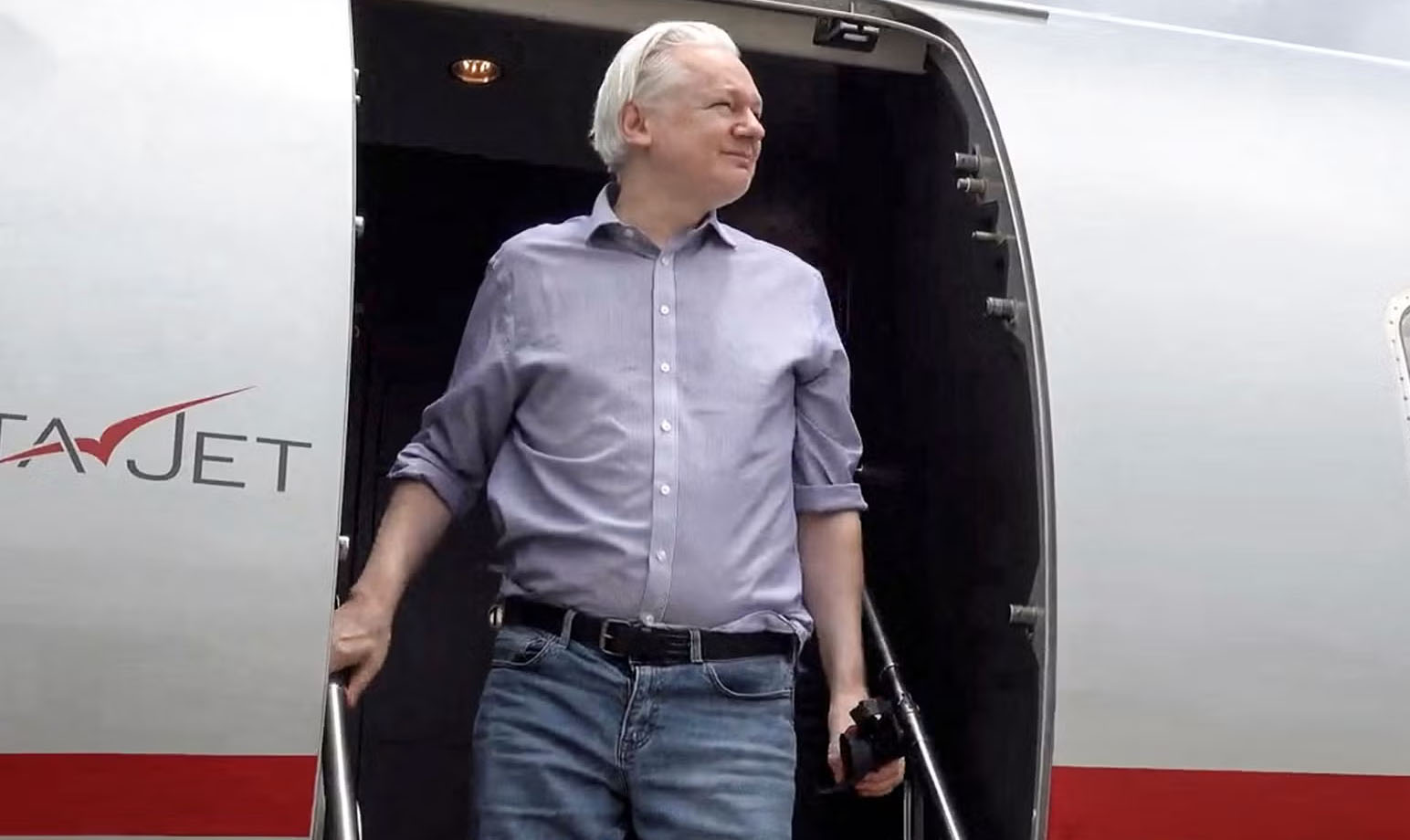Photo Credit: Getty Images
Julian Assange, the controversial founder of WikiLeaks, has agreed to plead guilty to a single felony charge in exchange for his release, potentially concluding a prolonged legal saga that has spanned over a decade. The plea deal, announced on Monday, marks a significant turning point in Assange's case and his relationship with the United States government.
Assange, 52, is expected to plead guilty to one count of illegally obtaining and disclosing national security material. The agreement allows him to appear before a federal judge in Saipan, capital of the Northern Mariana Islands, a U.S. commonwealth in the Pacific Ocean. This location is significantly closer to Assange's native Australia than mainland U.S. courts.
The WikiLeaks founder is anticipated to receive a sentence of approximately five years, equivalent to the time he has already served in British custody. Following the court proceedings, Assange is expected to return to Australia, ending his long confinement.
Assange's legal troubles began in 2010 when WikiLeaks published classified U.S. military documents related to the wars in Afghanistan and Iraq, as well as diplomatic cables. These revelations thrust WikiLeaks into the global spotlight and made Assange a polarizing figure - hailed by some as a champion of transparency and vilified by others as a threat to national security.
In 2019, the U.S. Justice Department charged Assange with 17 counts of violating the Espionage Act, a move that sparked outrage among press freedom advocates who argued that such charges posed a threat to free speech and investigative journalism.
The plea deal comes amid growing pressure on the Biden administration to resolve Assange's case. In February, the Australian government made an official request to drop the charges, stating that the case had "dragged on for too long and there is nothing to be gained by his continued incarceration."
Jodie Ginsberg, chief executive of the Committee to Protect Journalists, expressed relief at the news of Assange's expected release. She emphasized the potential global implications had Assange been extradited and prosecuted under the Espionage Act, particularly for journalists seeking to publish information about human rights abuses.
The plea agreement appears to be a compromise solution, allowing the U.S. government to secure a guilty plea on a criminal charge while addressing mounting international pressure for Assange's release.
As Assange prepares to return to Australia, his mother, Christine, expressed gratitude that her son's "ordeal is finally coming to an end." The resolution of this high-profile case marks a significant moment in the ongoing debate over government transparency, press freedom, and the balance between national security and public interest journalism.


